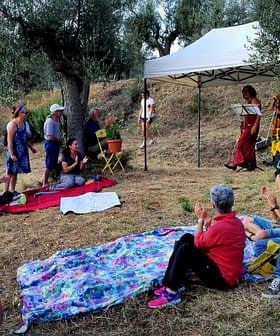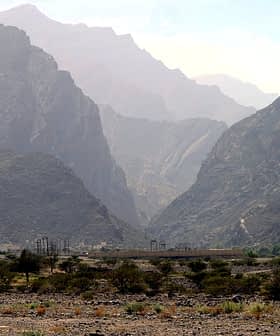Spanish olive oil output has doubled in the last ten years, but ongoing drought and climate change may mean a setback for the global leader in ‘liquid gold’ production.
Spain produces 46 percent of the world’s olive oil, a total that has increased from 28 percent in 2002. However, it is now being suggested that the country’s production may fall to the same fate as fellow olive oil producing powerhouses Greece and Italy due to the effects of climate change. Italy has seen a drop of 50 percent in production since 2001 and Greece has also seen its annual production levels decline by half, with climate change thought to be an important factor.
The decline of production in Italy and Greece has had a temporarily positive effect on Spain, which is now producing twice the joint production of Greece and Italy, happily filling the gap in the market. Olive oil is of huge importance to the Spanish agriculture sector, and is one of the leading agricultural exports for the country. However, the current harvest in Spain will be a poor one, with a 40 percent drop in production due to drought, leading to a huge leap in market prices for olive oil.
This decreased level of production may become commonplace if continued scarcity of water and increased temperatures start to effect groves in Spain, as they have elsewhere on an ongoing basis. While high temperatures are optimal for growth and development of olives, heavy rain is also necessary to complete the ripening process.
Water scarcity affects every continent and countries such as Greece and Italy have already suffered the devastating effects of drought, with olives dying at high temperatures and from lack of water. In addition to the direct effects of a changing climate on the olive population, variations in weather can also cause changes in other environmental factors such as insects and disease. These may then influence the olive tree population, an indirect effect of changing climates.
Spanish researchers have already suggested that a key area of Spanish olive oil production in Catalonia, the Siurana DOP, may become unviable within 20 years due to these increasing temperatures and water shortages. Spain is thought to be highly susceptible to climate change, with the Mediterranean Sea rising by eight centimeters in the last 50 years and an average increase in temperature of 0.028 degrees Celsius per year. Studies have shown that the flowering period of olives trees is highly dependent on the yearly spring temperatures, which are rising steadily over time.
If Spain is to continue its supremacy as an olive oil producing nation, new and innovative irrigation alternatives will have to be created to combat the constantly changing climate. This is no easy task however, as increasing irrigation can have negative effects on water supplies for the area, leading to desert-like areas and water shortages for other purposes, as has previously been seen in Greece, Italy and Portugal when irrigation demands increased.









